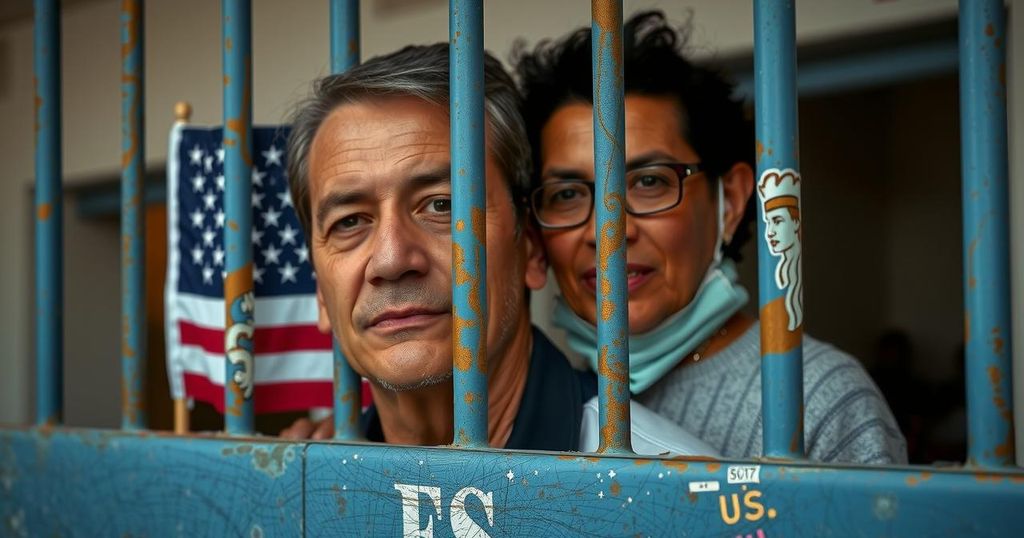Nicolás Maduro is set to begin a third presidential term in Venezuela amidst widespread allegations of electoral fraud and a crackdown on dissent. His administration continues to face severe criticism from both domestic and international communities as activists and opposition leaders face persecution, highlighting the deepening authoritarianism in the country.
Venezuelan President Nicolás Maduro is set to assume a third term amid escalating repression and allegations of electoral fraud. Despite substantial domestic and international condemnation regarding his authority, Maduro will be inaugurated for another six years, potentially extending his regime’s hold into a third decade. His return comes at a time when the streets of Caracas are heavily patrolled by police and military personnel, while opposition figures face imprisonment or exile.
The presidential palace in Miraflores will welcome Maduro despite the millions of Venezuelans expressing their desire for significant political change through recent elections. Notably, the recognized election victor, Edmundo González, is currently in exile, while leading opposition politician María Corina Machado remains in hiding. Machado recently resurfaced to lead pro-democracy protests but risks further backlash from security forces.
Government suppression of dissent continues to stifle political opposition, and with increasing surveillance measures, activists experience pervasive danger. This environment creates stark challenges for any movements seeking to mobilize against Maduro’s regime, exemplified by the threats to those participating in public demonstrations against the autocratic government.
Venezuela has been grappling with a severe political and economic crisis under President Nicolás Maduro’s administration. Since Maduro took office, the country has experienced hyperinflation, extreme food shortages, widespread power outages, and mass migration. The government has often been accused of undermining democratic institutions and resorting to violent repression of dissent. Political opposition leaders face intimidation, arrest, or exile, effectively stifling any significant challenges to Maduro’s power. The tumultuous socio-political landscape continues to create considerable human rights concerns in Venezuela as the regime intensifies its grip on power.
In conclusion, Nicolás Maduro’s upcoming third term is marked by heightened oppression and evident disregard for the political will of the Venezuelan people. The alarming reality of increasing detentions of dissenters and the exile of opposition leaders underscores the regime’s authoritarian tactics to maintain control. With millions opposing his leadership, Maduro’s continuation presents critical challenges for both Venezuelans yearning for change and the international community committed to supporting democratic processes in the region.
Original Source: www.nytimes.com






